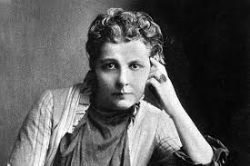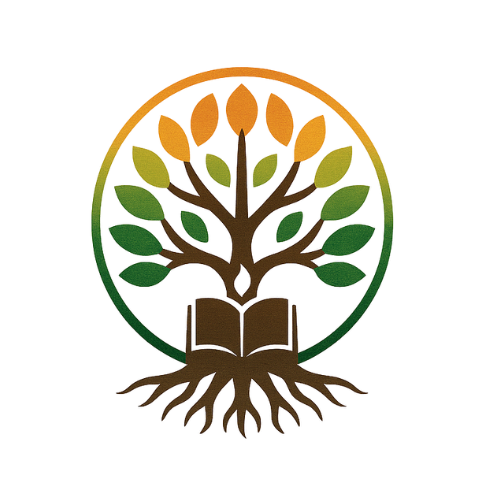Annie Besant: Difference between revisions
Created page with "{{#seo: |title=Annie Besant – British Theosophist and Indian Nationalist Leader |description=Annie Besant was a British social reformer, theosophist, and key leader in India’s Home Rule movement who became the first female President of the Indian National Congress in 1917. |keywords=Annie Besant, Home Rule League, Indian National Congress, Theosophy, Central Hindu College, British India, Indian independence |image=Annie Besant.jpg }} {{Infobox deceased | name..." |
No edit summary |
||
| (2 intermediate revisions by the same user not shown) | |||
| Line 10: | Line 10: | ||
| image_caption = Annie Besant in the early 20th century | | image_caption = Annie Besant in the early 20th century | ||
| birth_date = {{Birth date|1847|10|01}} | | birth_date = {{Birth date|1847|10|01}} | ||
| birth_place = London, England, United Kingdom | | birth_place = [[London]], [[England]], [[United Kingdom]] | ||
| death_date = {{Death date and age|1933|09|20|1847|10|01}} | | death_date = {{Death date and age|1933|09|20|1847|10|01}} | ||
| death_place = Adyar, Madras Presidency, British India (now Chennai, Tamil Nadu | | death_place = [[Adyar]], [[Madras Presidency]], [[British India]] (now [[Chennai]], [[Tamil Nadu]]) | ||
| resting_place = Theosophical Society Adyar, Chennai | | resting_place = Theosophical Society Adyar, Chennai | ||
| nationality = British (later naturalized in India) | | nationality = British (later naturalized in India) | ||
| occupation = Social reformer, Theosophist, Nationalist Leader, Educator | | occupation = Social reformer, Theosophist, Nationalist Leader, Educator | ||
| years_active = 1870s–1933 | | years_active = 1870s–1933 | ||
| known_for = | | known_for = [[Home Rule Movement]], [[Theosophical Society]], [[Indian National Congress]] | ||
| notable_works = ''The Ancient Wisdom'', ''The Law of Population'', founding Central Hindu College | | notable_works = ''The Ancient Wisdom'', ''The Law of Population'', founding [[Central Hindu College]] | ||
| spouse = Frank Besant (separated) | | spouse = Frank Besant (separated) | ||
| children = 2 | | children = 2 | ||
| parents = William Page | | parents = William Page Wood (father), Emily Roche Morris (mother) | ||
| religion = Theosophy | | religion = Theosophy | ||
| website = | | website = <!-- No official website --> | ||
| age_at_death = 85 | | age_at_death = 85 | ||
}} | }} | ||
'''Annie Besant''' (1 October 1847 – 20 September 1933) was a British social reformer, theosophist, and one of the most prominent figures in India's early nationalist movement. She was the first woman to preside over the [[Indian National Congress]] in 1917 and a major voice in India’s [[Home Rule Movement]].<ref>[https://www.britannica.com/biography/Annie-Besant Britannica – Annie Besant]</ref> | |||
'''Annie Besant''' (1 October 1847 – 20 September 1933) was a British social reformer, theosophist, and prominent | |||
== Early Life and Reform Work == | == Early Life and Reform Work == | ||
Born Annie Wood in London, | Born Annie Wood in [[London]], Besant grew up in a middle-class family. She married [[Frank Besant]], an Anglican clergyman, but their ideological differences led to separation in 1873. Afterward, she became active in the [[National Secular Society]] and [[Fabian Society]], advocating for workers' rights, secularism, and women's emancipation.<ref>[https://www.oxfordreference.com/view/10.1093/oi/authority.20110803095502980 Oxford Reference – Annie Besant]</ref> | ||
She published works on birth control and was famously tried (and acquitted) in 1877 for publishing the controversial pamphlet *The Law of Population*. She led the 1888 [[Bryant and May matchgirls strike]], marking a turning point in labor rights for women in Britain.<ref>[https://www.britannica.com/biography/Annie-Besant Britannica – Annie Besant]</ref> | |||
== Theosophy and | == Role in Theosophy and Indian Education == | ||
In 1889, Besant joined the [[Theosophical Society]], embracing Eastern philosophy and spirituality. She moved to India in 1893 and became deeply involved in Indian society. In 1898, she founded the [[Central Hindu College]] in Varanasi, which later became part of [[Banaras Hindu University]].<ref>[https://www.nextias.com/blog/annie-besant/ Next IAS – Annie Besant Biography]</ref> | |||
== Nationalist Politics == | |||
In 1914, Besant began publishing the newspaper ''New India'', advocating for [[Swaraj]] (self-rule). She co-founded the [[Home Rule League]] in 1916 with [[Bal Gangadhar Tilak]] and played a pivotal role in demanding constitutional reforms from the British Raj. | |||
Her arrest in 1917 sparked national protests and led to her being elected the first woman President of the [[Indian National Congress]].<ref>[https://www.britannica.com/biography/Annie-Besant Britannica – Annie Besant]</ref> | |||
== Later Years and Legacy == | == Later Years and Legacy == | ||
Besant | Even after independence became more radicalized under [[Mahatma Gandhi]], Besant continued promoting education, interfaith dialogue, and international Theosophy. She passed away in 1933 at the Theosophical Society campus in [[Adyar]], where she was cremated. | ||
Her contributions are remembered in both Indian nationalism and global spiritualism. Roads, institutions, and awards across India bear her name. | |||
== See Also == | == See Also == | ||
* [[Theosophical Society]] | * [[Theosophical Society]] | ||
* [[Home Rule | * [[Home Rule Movement]] | ||
* [[Indian National Congress]] | * [[Indian National Congress]] | ||
* [[Central Hindu College]] | * [[Central Hindu College]] | ||
| Line 54: | Line 55: | ||
== References == | == References == | ||
<references /> | <references /> | ||
[[Category:Articles needing expansion]] | |||
[[Category:Articles needing more references]] | |||
Latest revision as of 09:41, 14 July 2025
| Annie Besant | |
|---|---|

| |
| Annie Besant in the early 20th century | |
| Born | 01 October 1847 |
| Birthplace | London, England, United Kingdom |
| Died | 20 September 1933 (aged 85) |
| Place of death | Adyar, Madras Presidency, British India (now Chennai, Tamil Nadu) |
| Resting place | Theosophical Society Adyar, Chennai |
| Nationality | British (later naturalized in India) |
| Occupation | Social reformer, Theosophist, Nationalist Leader, Educator |
| Years active | 1870s–1933 |
| Known for | Home Rule Movement, Theosophical Society, Indian National Congress |
| Notable works | The Ancient Wisdom, The Law of Population, founding Central Hindu College |
| Awards | |
| Spouse(s) | Frank Besant (separated) |
| Children | 2 |
| Parents | William Page Wood (father), Emily Roche Morris (mother) |
| Religion | Theosophy |
| Website | |
Annie Besant (1 October 1847 – 20 September 1933) was a British social reformer, theosophist, and one of the most prominent figures in India's early nationalist movement. She was the first woman to preside over the Indian National Congress in 1917 and a major voice in India’s Home Rule Movement.[1]
Early Life and Reform Work
Born Annie Wood in London, Besant grew up in a middle-class family. She married Frank Besant, an Anglican clergyman, but their ideological differences led to separation in 1873. Afterward, she became active in the National Secular Society and Fabian Society, advocating for workers' rights, secularism, and women's emancipation.[2]
She published works on birth control and was famously tried (and acquitted) in 1877 for publishing the controversial pamphlet *The Law of Population*. She led the 1888 Bryant and May matchgirls strike, marking a turning point in labor rights for women in Britain.[3]
Role in Theosophy and Indian Education
In 1889, Besant joined the Theosophical Society, embracing Eastern philosophy and spirituality. She moved to India in 1893 and became deeply involved in Indian society. In 1898, she founded the Central Hindu College in Varanasi, which later became part of Banaras Hindu University.[4]
Nationalist Politics
In 1914, Besant began publishing the newspaper New India, advocating for Swaraj (self-rule). She co-founded the Home Rule League in 1916 with Bal Gangadhar Tilak and played a pivotal role in demanding constitutional reforms from the British Raj.
Her arrest in 1917 sparked national protests and led to her being elected the first woman President of the Indian National Congress.[5]
Later Years and Legacy
Even after independence became more radicalized under Mahatma Gandhi, Besant continued promoting education, interfaith dialogue, and international Theosophy. She passed away in 1933 at the Theosophical Society campus in Adyar, where she was cremated.
Her contributions are remembered in both Indian nationalism and global spiritualism. Roads, institutions, and awards across India bear her name.
See Also
- Theosophical Society
- Home Rule Movement
- Indian National Congress
- Central Hindu College
- Banaras Hindu University

